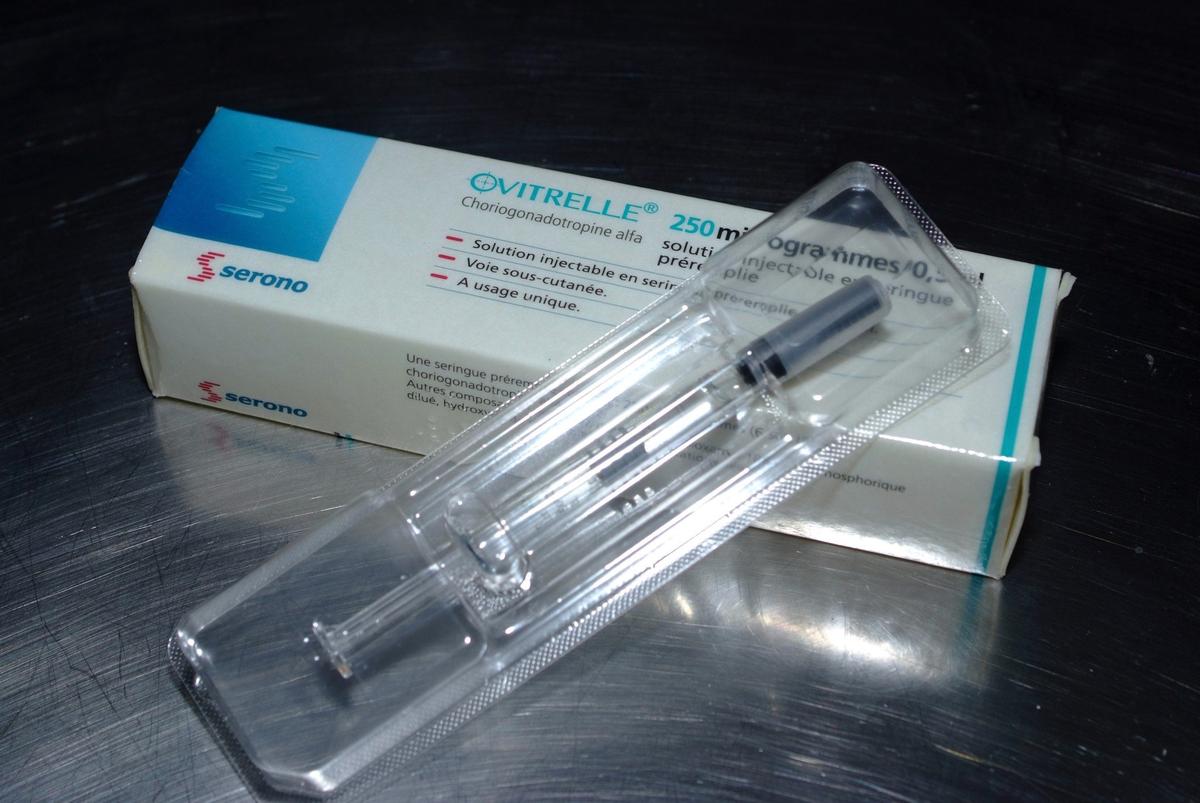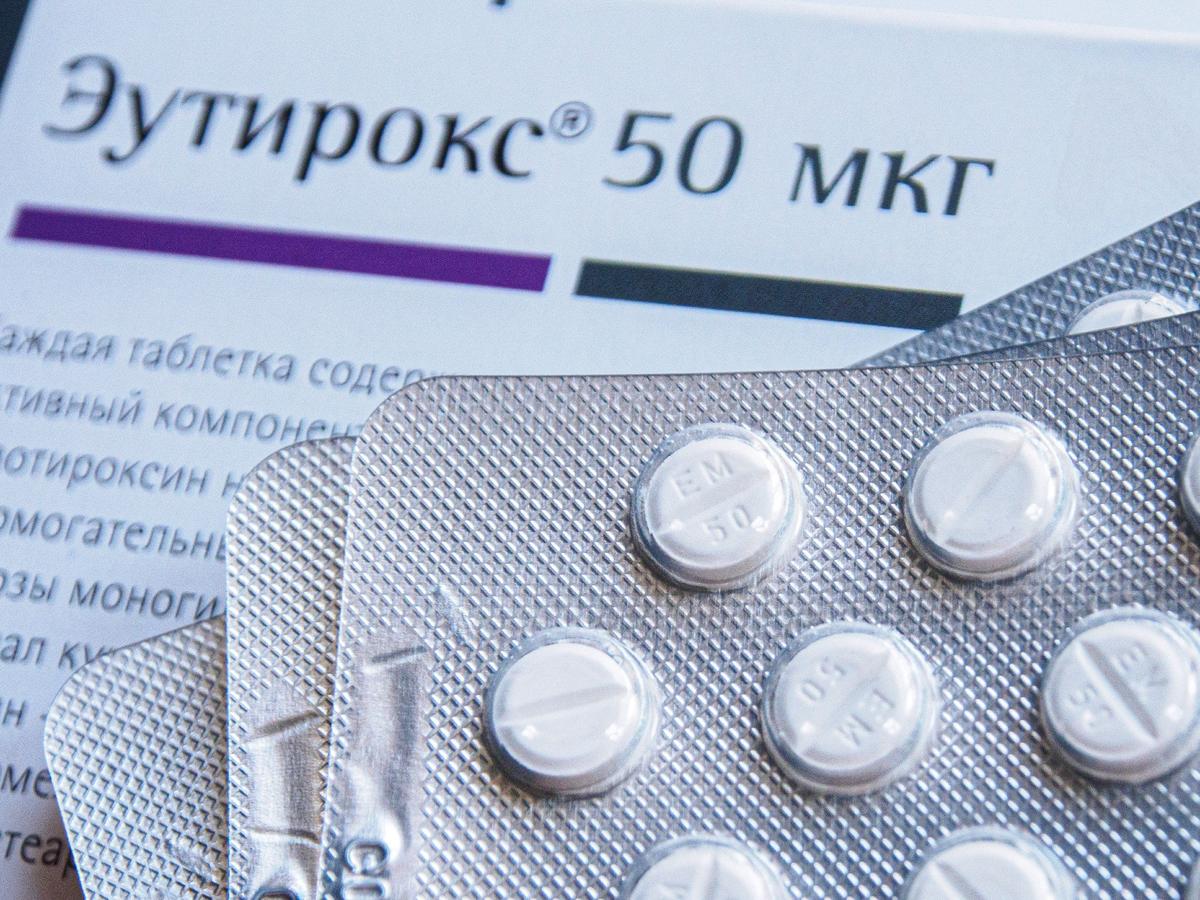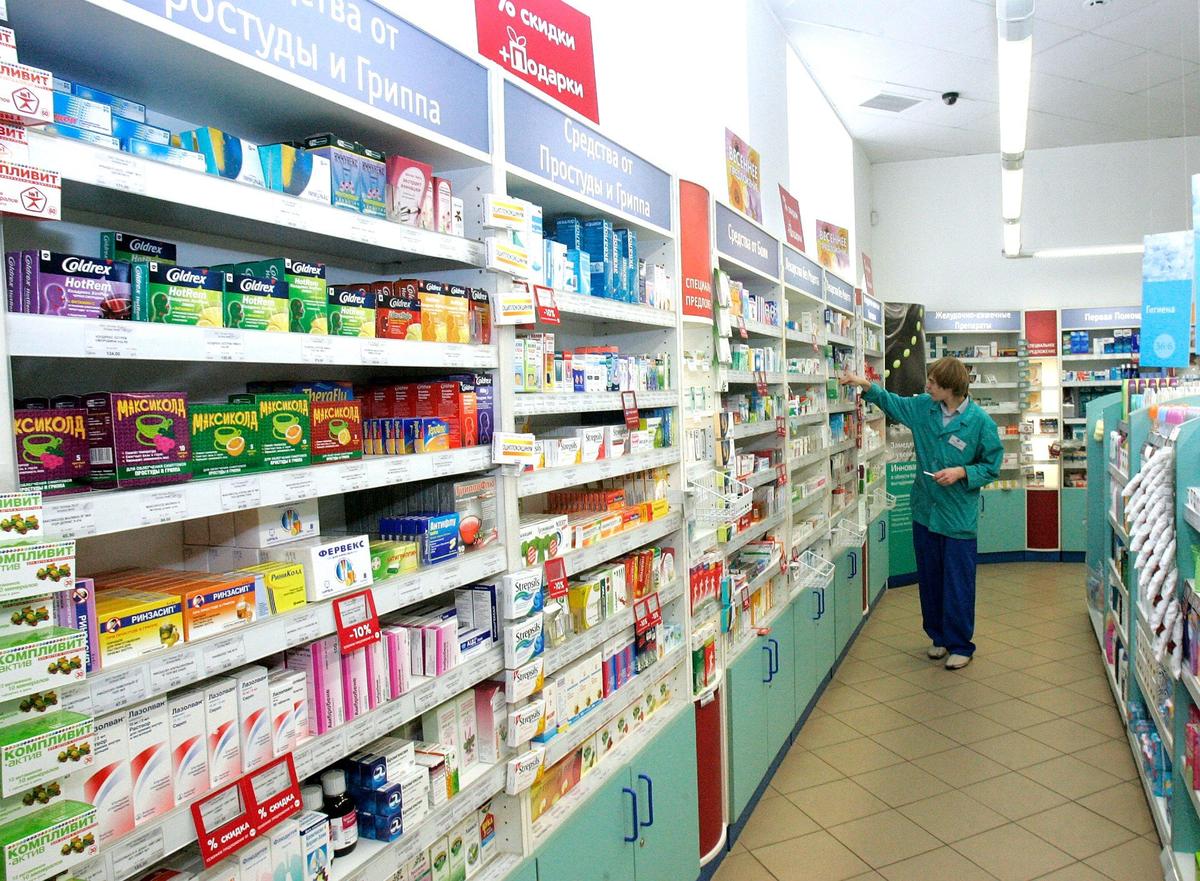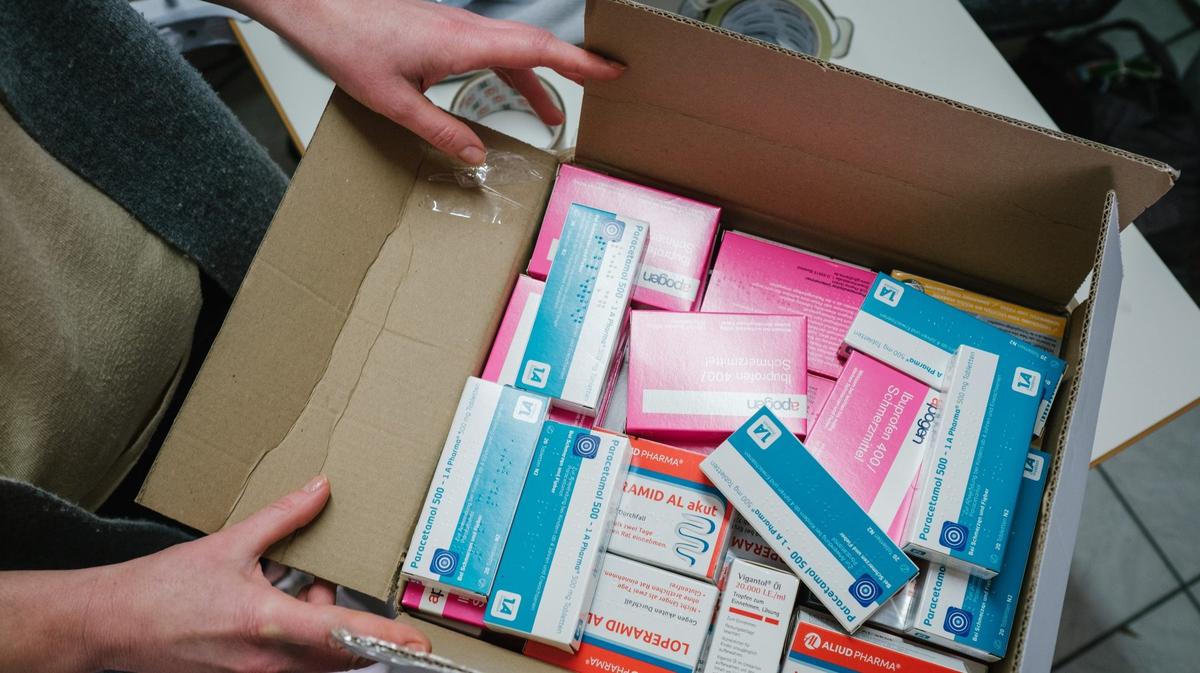In late March, Vedomosti published the results of a poll held among over 3,000 doctors. According to the newspaper, medical workers were faced with a shortage of over 80 medications. Some of them are considered life-saving medications with no analogues available in Russia. After nearly five months of the war, the situation has only got worse.
Novaya Gazeta. Europe has talked to ordinary Russian citizens that cannot buy the drugs they need. We have also spoken to Russian doctors about how they are dealing with the shortage of medications.
‘Infertility will multiply’
Irina K., 33, lives in Moscow. In the spring of 2022, she and her husband began planning a pregnancy. In order to conceive, they needed an injection of Ovitrelle, a Swiss-made drug that stimulates the ovaries and triggers ovulation. Irina visited numerous pharmacies in Moscow over the course of April and May. She only found one ampoule in a pharmacy near a specialised medical centre. It was the last one available.
“I couldn’t find neither the foreign Ovitrelle nor its Russian analogues. Another important thing is that according to my doctor, the analogues contain more than one substance, that is, it’s not just the hormone I need. Not everyone would agree to inject these drugs, because there can be side effects,” Irina says. “My doctor, and she’s a very good one, doesn’t know what to do. ‘I don’t know what to prescribe you because there are no drugs.’ Right now, she offers several versions of the same drug when she prescribes something, hoping that her patients will be able to find at least one of them. And it’s really hard to find anything, although we live in Moscow. Here of all places, there should be some kind of options and possibilities. I’m going to start ovulating soon, and I can’t be sure that I won’t need another shot. And I can’t be sure that I’ll be able to find it.”

Photo: BSIP / UIG / Getty Images
Tatyana, another one of our readers, tells us that for the past month, it has been impossible to find Divigel, a hormone medication produced in Finland that is prescribed to women who are planning a pregnancy.
There is no Estrogel, an analogue medication to Divigel, available in Russian pharmacies either.
Valeria Starikova [the name was changed at the request of the author — editor’s note], a fertility doctor at a Moscow clinic, says that as of now, there are no serious issues with ovulation-triggering drugs: it can be hard to find them in pharmacies, but there are enough of them stored up in specialised clinics. However, Starikova confirms that there is a lack of hormone drugs required for in-vitro fertilisation (IVF): if no analogues appear on the market, it will become impossible for many couples to conceive.
“We first felt it [the shortage of drugs] in May. Some of the drugs couldn’t be found in pharmacies at all. While we could get IVF stimulation drugs, such as Progynova and Divigel, that we must give to the patients for free, through company representatives, the patients themselves cannot find them anywhere. Since May, there have been some problems: there were no drugs for hormone replacement therapy or IVF stimulation. We fought the company representatives for what little that was left. The head of the clinic and the chief physician used their own connections and talked to the top representatives of the companies. They sent us tiny batches of the drugs that we needed. We got by in June somehow. But now, in July, we have completely run out of some drugs. There is nothing left,” the doctor says.
According to Starikova, there are no Russian analogues to the required medications, as “the sanctions took the country and its pharmaceutical industry by surprise”.
“Doctors are trying to find a way out of this situation somehow, each one of us has their own life hacks. But what do we do when there is no way to get around without the necessary drugs? We are forced to refuse treatment to those patients, that is, there will be no donor egg IVF. This is what we are coming to. There are women who were surgically castrated, they live without ovaries: there is nothing we can do for them. IVF for senior patients won’t be an option either. My oldest patient gave birth at 60. There are women who gave birth at 58. But unfortunately, this will now be impossible without the drugs.”
Head of the National Medical Research Centre for Obstetrics, Gynecology and Perinatology Vladimir Kulakov says that about 15% of couples in Russia are infertile. Valeria Starikova confirms this: she says that before the sanctions, those couples could find a way to conceive using IVF. Now, the IVF success rate, which was not high to begin with (about 30-35%) will go down. I don’t know what will happen next. I don’t know what we’re coming to,” the doctor sighs.
“The IVF success rate will be practically zero. Patients will stop believing fertility doctors. We won’t be able to achieve a pregnancy without the drugs. It will be a national problem. If these drugs are no longer supplied to all parts of Russia, and they are all foreign, if the sanctions are not eased somehow, we will be in a very sad situation, indeed. Those who are prescribed IVF will not do it. Infertility will multiply. Now, IVF helps boost Russia’s birth rate at least a little bit. Infertility is getting younger, many young couples can’t get pregnant, and sometimes, the causes are not clear. Even in Moscow, the situation is very difficult. I don’t know what will happen next. I don’t know what we’re coming to,” the doctor ponders.
No Russian analogues
After the start of the war, pharmaceutical giants Pfizer, Novartis, AbbVie and Sanofi announced that they would suspend investments into the Russian market. The companies added that they would continue supplying life-saving medicines to Russia. US-based Eli Lilly was the first major pharmaceutical company to halt the supply of medicines to Russia. In early July, another US-based company, MSD, notified its counteragents that it would stop supplying Russia with vaccines against measles, mumps (M-M-R II), rubella and chickenpox. Besides, due to the sanctions and the closed airspace, it takes much longer to deliver medicines from Germany to Russia. It was there that Russian pharmacies bought Euthyrox and L-Thyroxine, vital medications for patients with thyroid issues.

Photo: Alexander Sayganov / SOPA Images / LightRocket / Getty Images
The active component in these medications is levothyroxine sodium. It is considered a life-saving drug that must be provided by the state for free. This medicine has no Russian analogues.
Irina from Rostov-on-Don says that there are no thyroid medications available in any local pharmacy.
“My 74-year-old mother must take these medicines all her life, because she has thyroid problems. After the so-called special military operation began, she stored up on some of it, and then we came to a pharmacy to find there was nothing left. No analogues either. We had to order it through our relatives in Israel. There is also Calamine, it’s a children’s medicine used to treat chickenpox, urticaria and all kinds of rashes. It’s a modern drug, and it’s still not available. It’s produced in Israel. There were also problems with Fenules, it’s a drug used for treatment of iron deficiency. It’s been gone for about three months. There are no Russian analogues to it either,” Irina complains.
Sofia from Moscow also discovered a shortage of iron deficiency medications. Her eight-week-old child was diagnosed with perinatal anaemia.
If a low haemoglobin count is maintained for a long time, the child can suffer from hypoxia, a condition in which the body is deprived of adequate oxygen supply. All organs and tissues are affected by this condition.

Photo: Mikhail Voskresensky / Bloomberg / Getty Images
“A haematologist at the Morozov hospital prescribed us Maltofer drops, because the child is an infant, he cannot take it in syrup form. We started to look for it in pharmacies, it was nowhere to be found. Everyone just says that it hasn’t been supplied for a couple of months. There was this only pharmacy that sold the syrup. There were no other options, so we bought it. My friend from Rostov is a college teacher. She asked her students to look for the drops in local pharmacies. They found two small bottles, she brought them to me. There are no iron medications for children. Besides, I was diagnosed with anaemia after the C-section. The doctors at the hospital told me to take Fenules after I was discharged. I visited a pharmacy in March, there was no Fenules, and no analogues in this price range. The only thing that was left on the shelves at that time was Sorbifer Durules, sold at 1,200 rubles (€19), and some other drug that was even more expensive. The doctor can’t help me with my complaints. He says ‘It feels like we’ll soon be treating anaemia with nails.’ I can say ‘screw this’ myself and take a Russian analogue. But I don’t want to give a generic drug to my kid, because who knows what they put in there,” Sofia says.
Ekaterina from the Kostroma region has a nine-year-old daughter diagnosed with bronchial asthma. The girl needs to use Seretide, an expensive French inhaler, on a regular basis. Before the war, she got the medicine for free, paid for by the regional government in accordance with the Russian law. However, in March, Ekaterina was given a lower dose due to the fact that there were barely any medicines left in storage. In May, the government refused to provide her with Seretide altogether.
“The Department of Health no longer purchases it to give it to the patients for free. We wrote to the prosecutor’s office, which went to court demanding that my daughter be provided with the medicine she needs. This issue still hasn’t been solved. There is no medicine available for free.
We have to order it with our own money at an online pharmacy. My question is: what do we need the government for if a child cannot get the medicine they need, as required by law?”
Aleksandr K. from St. Petersburg tells us that the government has stopped providing patients with vital medicines Vandetanib and Caprelsa. These drugs are required to treat thyroid cancer. They do not have any Russian analogues. Aleksandr’s wife Natalia has been suffering from papillary thyroid cancer for several years. With the right treatment approach, patients can live with this type of tumour, however, the family does not have enough money to buy the necessary medicines. A Caprelsa blister pack of 30 tablets manufactured by AstraZeneca costs about 100,000 rubles (€1,660). The same tablets by Genzyme Europe B.V. cost even more: 300,000 rubles (€4,980).
“Honestly, I don’t know what to do at this point. I’m working several jobs to keep Natasha alive, and now I need to find money for Vandetanib somewhere. I don’t know where and how,” the man says.
Thousands of Russians are now faced with similar issues despite the officials assuring them that there will be no issues with drug supply following the sanctions. Russian Health Minister Mikhail Murashko said in March that all pharmaceutical companies had confirmed that they would continue supplying medicines to Russia. According to him, the problems with drug supply were caused by Russians buying the medicines in bulk after “believing fake news and unreliable information” about the upcoming supply problems.
Делайте «Новую» вместе с нами!
В России введена военная цензура. Независимая журналистика под запретом. В этих условиях делать расследования из России и о России становится не просто сложнее, но и опаснее. Но мы продолжаем работу, потому что знаем, что наши читатели остаются свободными людьми. «Новая газета Европа» отчитывается только перед вами и зависит только от вас. Помогите нам оставаться антидотом от диктатуры — поддержите нас деньгами.
By clicking the Support button, you agree to the processing of your personal data.
To cancel a regular donation, please write to [email protected]

